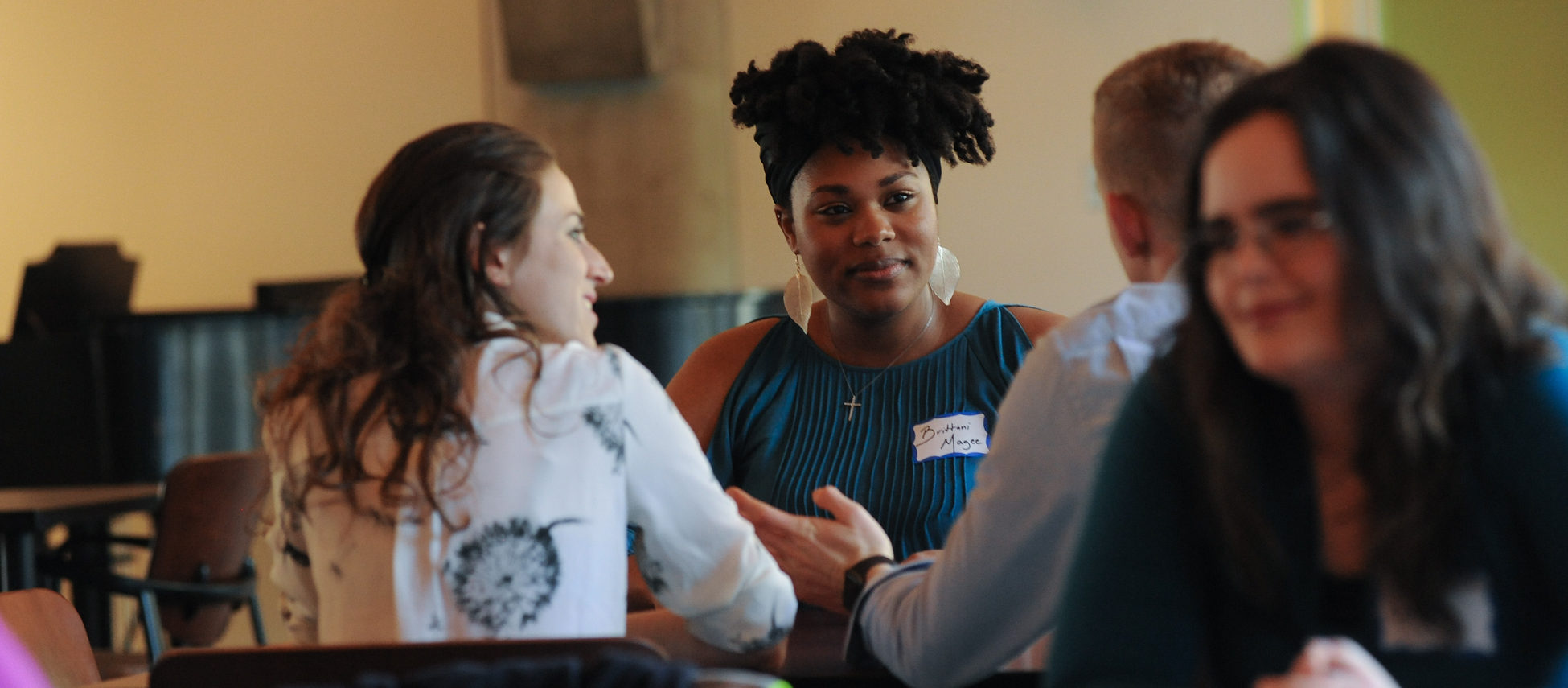What Does Interfaith Engagement Mean to Religious Millennials? Response from Amanda Wolkin

The perspective of seasoned Atlanta community and faith leaders within the discussion of interfaith engagement is invaluable. But it is equally important to shine a light on new, fresh voices in this conversation. To this end, we are excited to introduce a four-part blog series sharing the thoughts of three young interfaith leaders in Atlanta. Brittani Magee, Amanda Wolkin, and Hamdi Abdi met during a dialogue dinner at Emory University’s Candler School of Theology last spring and come from varying religious backgrounds. They will each be tapping into their unique perspectives as religious young adults to discuss what interfaith engagement means to them within today’s social, political, and societal context. Be sure to stay tuned for the fourth, final post in this series detailing their collaborative call to action for the Atlanta interfaith community.
RESPONSE FROM AMANDA WOLKIN
Two years ago, with only a bag, a passport, and a blind sense of adventure, I boarded a 27-hour flight to Malaysia. At the time, I didn’t know where I’d be living, who I’d be teaching, or how I’d fare over the next 10 months as a Fulbright grantee. Would I like the food? Would I get along with my school community? And – as the lingering voice of fear in my head reminded me – would I feel safe as a Jew in a Muslim community?
Before I got off the plane, I made the decision to keep my religious identity a secret. I told myself it was a matter of safety when, in reality, it was a matter of dialogue. Over the next year, as I lived and worked in a Muslim community, I learned extensively about the Islamic faith. I dressed in traditional baju kurung, accompanied my students to their family Iftars, and began asking questions about the Qur’an. Before long, I realized one simple truth: although our faiths were different, our values were not. These kind people had become my family, no matter our belief systems.
Before I left, I sat down with my closest friend, a Muslim co-teacher, and told her I was Jewish. She sat, stared, and then wrapped me in a hug. I was the first Jew she had ever met. Coming back to America, I was determined to continue engaging in this interfaith dialogue. After all, in a political climate when so much is misunderstood or overgeneralized, it’s essential to truly engage in these conversations. Behind the labels, we are all people: people to listen to, learn from, and understand together.
 Amanda Wolkin is passionate about education and writing: two fields that have led her quite literally around the world. While an Atlanta native, Amanda studied Creative Writing and Urban Education at the University of Pennsylvania before embarking on a Fulbright English Teaching Assistantship in Malaysia. In the small town of Kuching, Sarawak, Amanda taught creative writing to middle school students and eventually launched the first English-language writing competition sponsored by the U.S. Embassy. Since moving back to Atlanta, Amanda has worked extensively in both the non-profit and marketing sector. She now combines these skillsets as a content strategist at Jackson Spalding, where she advises on social strategy and non-profit/corporate social responsibility marketing.
Amanda Wolkin is passionate about education and writing: two fields that have led her quite literally around the world. While an Atlanta native, Amanda studied Creative Writing and Urban Education at the University of Pennsylvania before embarking on a Fulbright English Teaching Assistantship in Malaysia. In the small town of Kuching, Sarawak, Amanda taught creative writing to middle school students and eventually launched the first English-language writing competition sponsored by the U.S. Embassy. Since moving back to Atlanta, Amanda has worked extensively in both the non-profit and marketing sector. She now combines these skillsets as a content strategist at Jackson Spalding, where she advises on social strategy and non-profit/corporate social responsibility marketing.